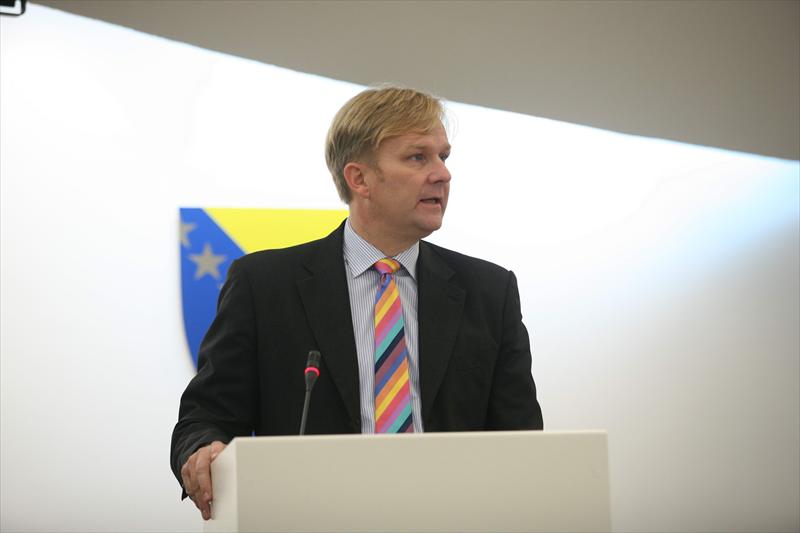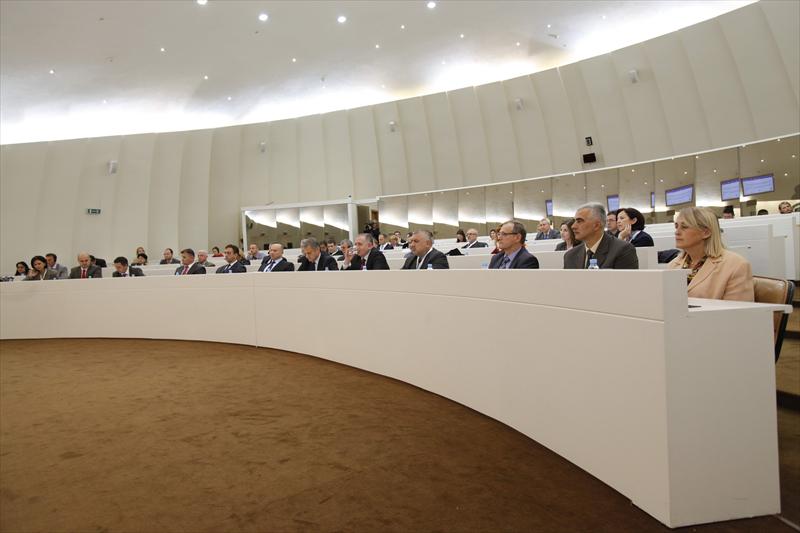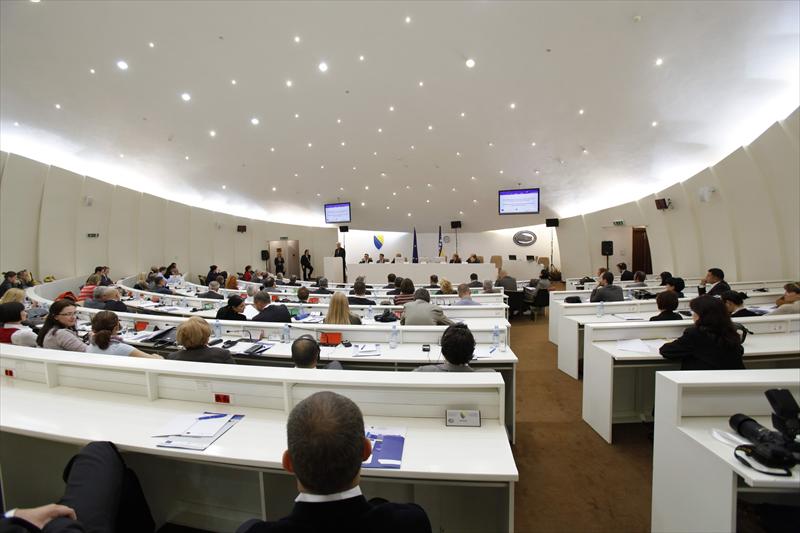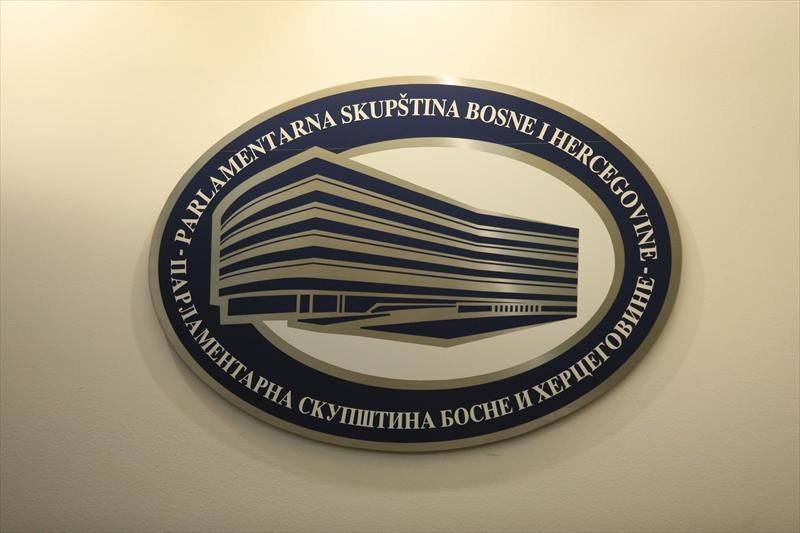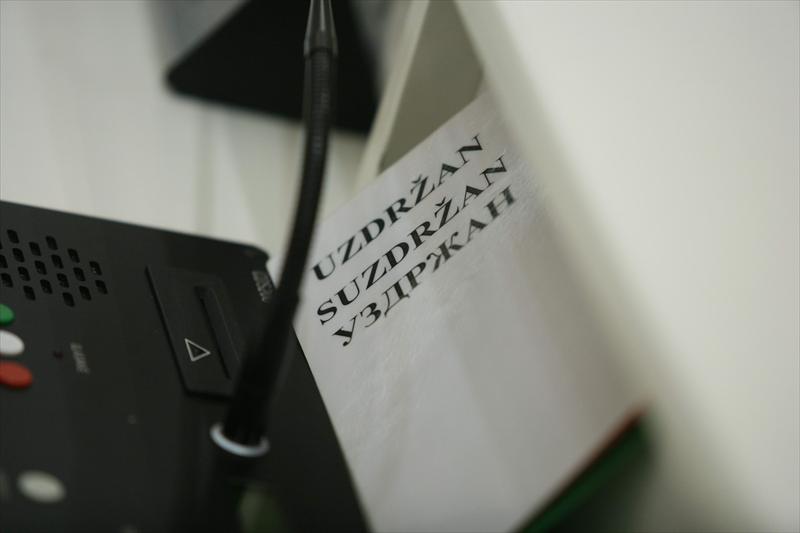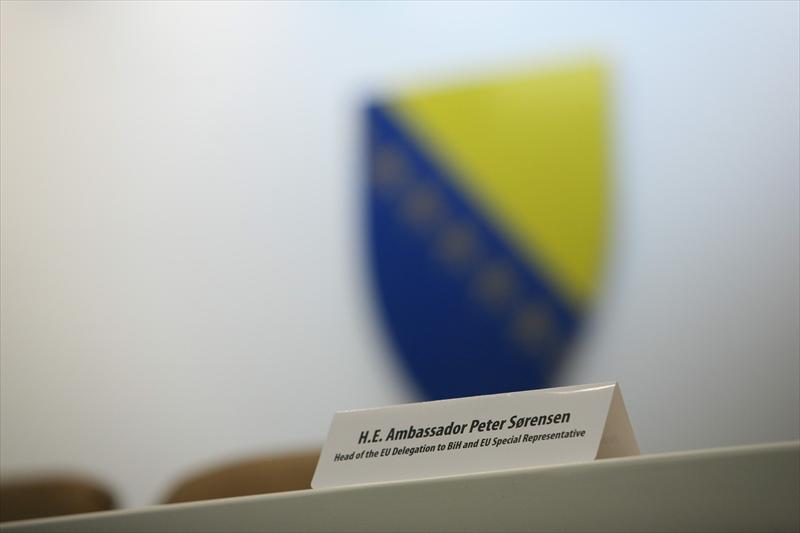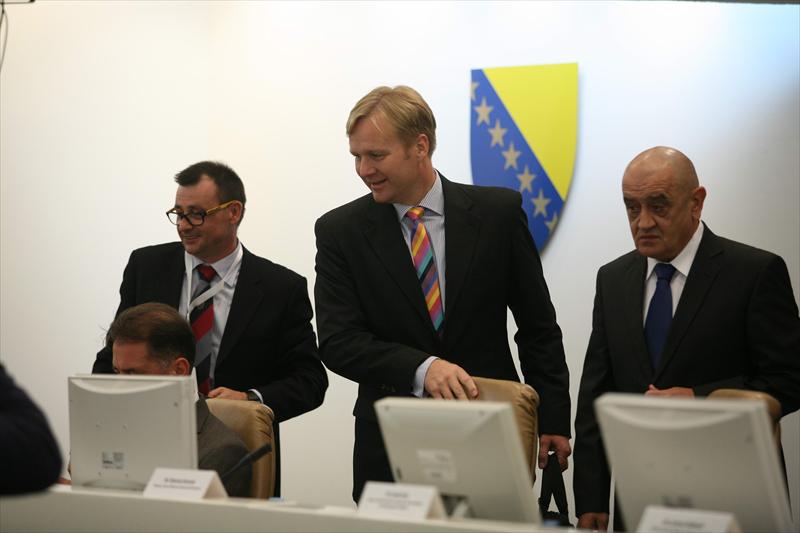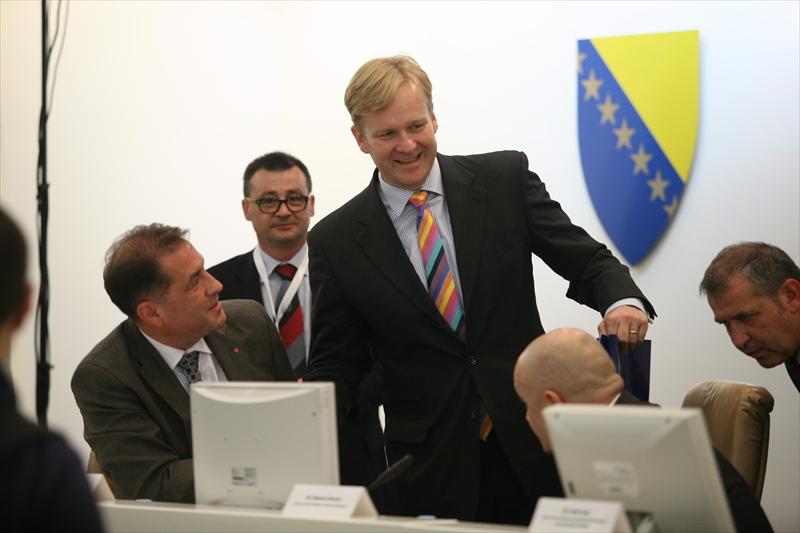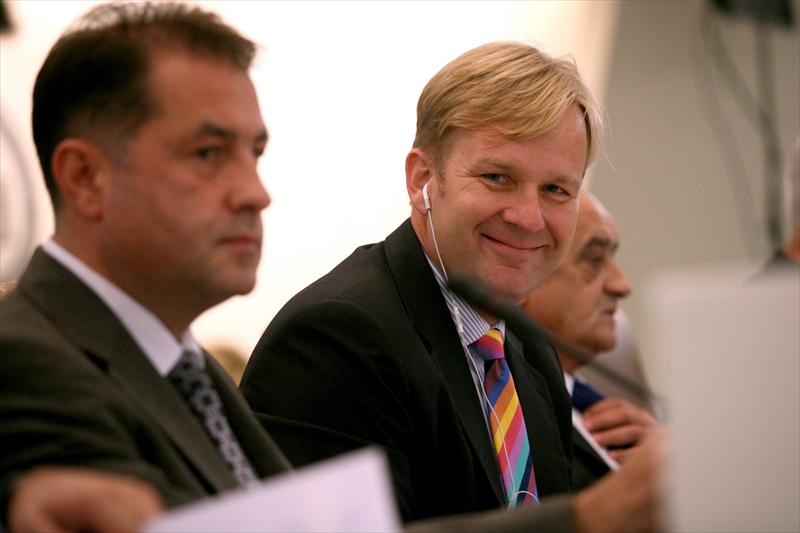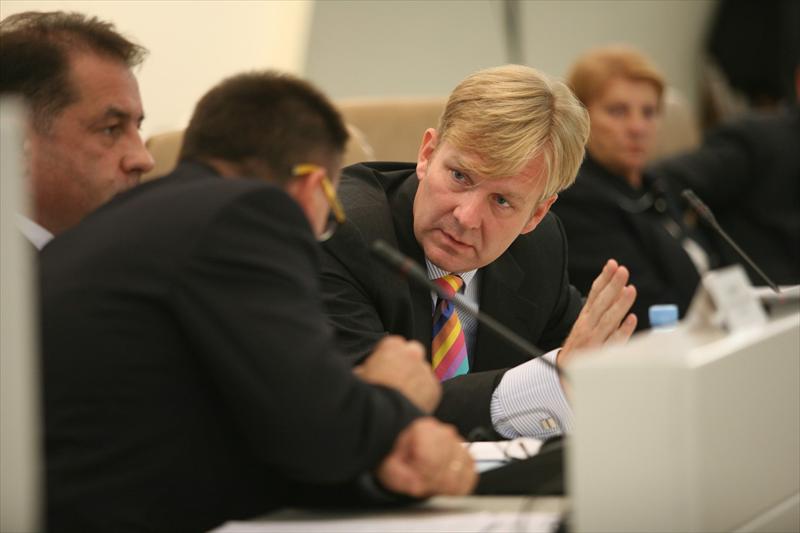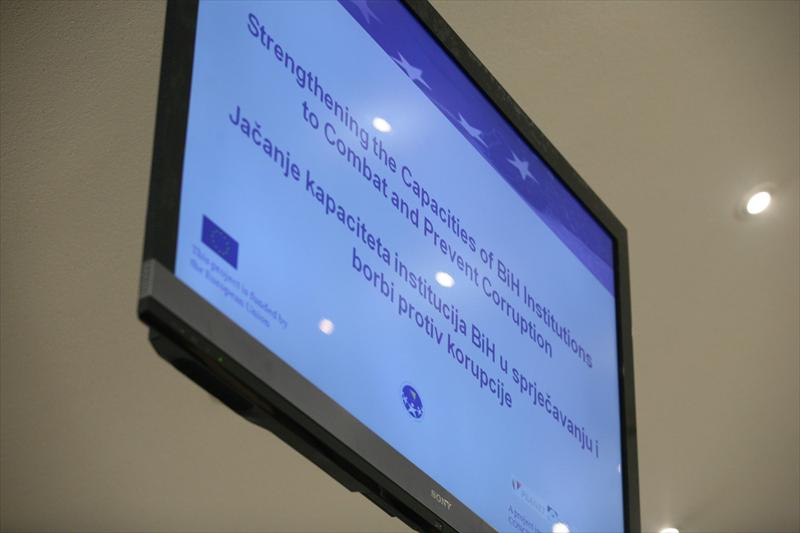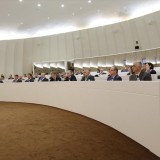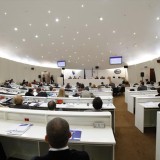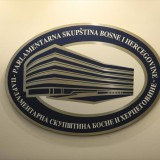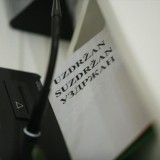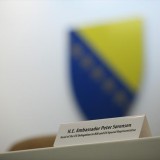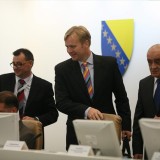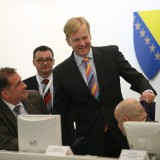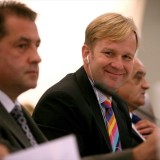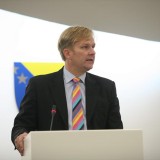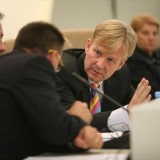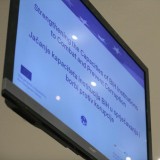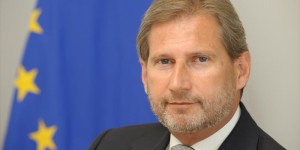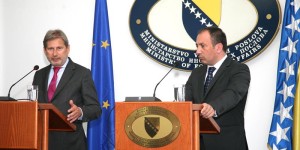Dear Chairman of the Council of Ministers, Ministers, distinguished colleagues, Ladies and Gentlemen,
91…125…20… What do these numbers mean?
91 is the rank which Bosnia and Herzegovina occupied in last year’s world wide corruption perception ranking made by the Transparency International.
125 is Bosnia and Herzegovina’s rank in the World Bank’s survey of countries in which it is easy to do business.
20% is the estimate of the UN Office on Drugs and Crime of people in Bosnia and Herzegovina who have faced corruption over the past 12 months.
In short, BiH has a problem or rather a challenge to deal with. This problem or challenge was confirmed last week in the EU’s Progress Report. As you know, the progress report takes stock of where the country is on its road towards EU, and what it has achieved over the last year. And as I informed the leadership of this country, these achievements have been limited and need to be improved. Corruption undermines the accountability in democracy, weakens the effectiveness and independence of the judiciary, it undercuts the prospects of a growing economy, it weakens the delivery of health and education services. In short, it undermines the very foundation of a state. It is clear that the following action is needed when you read the Progress Report:
create the necessary legislative framework,
put in place the appropriate institutions
and mobilise political will.
Fighting corruption means having a proper legislative framework in place. This is largely in place. The overarching elements were put in place as part of our visa dialogue, when Bosnia and Herzegovina received a roadmap with benchmarks. One of the benchmarks was the setting up of an Anti-Corruption Agency and preparation of an anti-corruption strategy and an action plan. We assisted in the drafting of these key documents.
We clearly identified much more actions that have to be taken:
First, we need to see a public procurement law adopted and implemented, in line with the EU acquis. This will ensure that the best service or infrastructure is delivered in return for taxpayers’ money.
Second, whistleblower protection measures are required, in order to ensure that people can come forward with information without having to be afraid of retribution.
Third, the strengthening of the witness protection programme legislation and a more transparent recruitment in the public sector, based on merit, needs to be done.
Fighting corruption however also requires a strong civil society. We have and will continue to support the efforts of civil society to address corruption from the grassroots level.
But to most effectively fight corruption means preventing it – which brings me to the occasion of today’s event.
Prevention requires a systematic and coordinated action from all government bodies at all levels – State, entities, district, cantonal, municipal. While we will support all these effort through our project, it is clear that the Anti-Corruption Agency has a central role to play in this. So I call on you today to support it, both in terms of providing it with adequate resources but also in terms of coordinating and cooperating with it. And I encourage you to make full use of the expertise it has begun to build up.
The Anti-Corruption Agency must be in a position to lead by example in the challenge to take on corruption – and phenomena such as nepotism and favouritism which accompany it. The Agency must demonstrate to everyone that it is possible to run an effective institution in Bosnia and Herzegovina based on the principles of merit and responsiveness.
To come back to the numbers I mentioned at the beginning. The EU cannot be and does not want to be the sole driving force for integrity in this country. It is the responsibility of the institutions of Bosnia and Herzegovina, the leaders at all levels, to open the way for people – and then to work with them to move this country ahead.
Fighting corruption is not something you should do because of the EU. It is something you must do for yourself. To make Bosnia and Herzegovina an attractive place for business, for its citizens and for its young people.
Let’s aim for “91, 125, and 20” to be reduced at least by a third in 2013.
Thank you.

